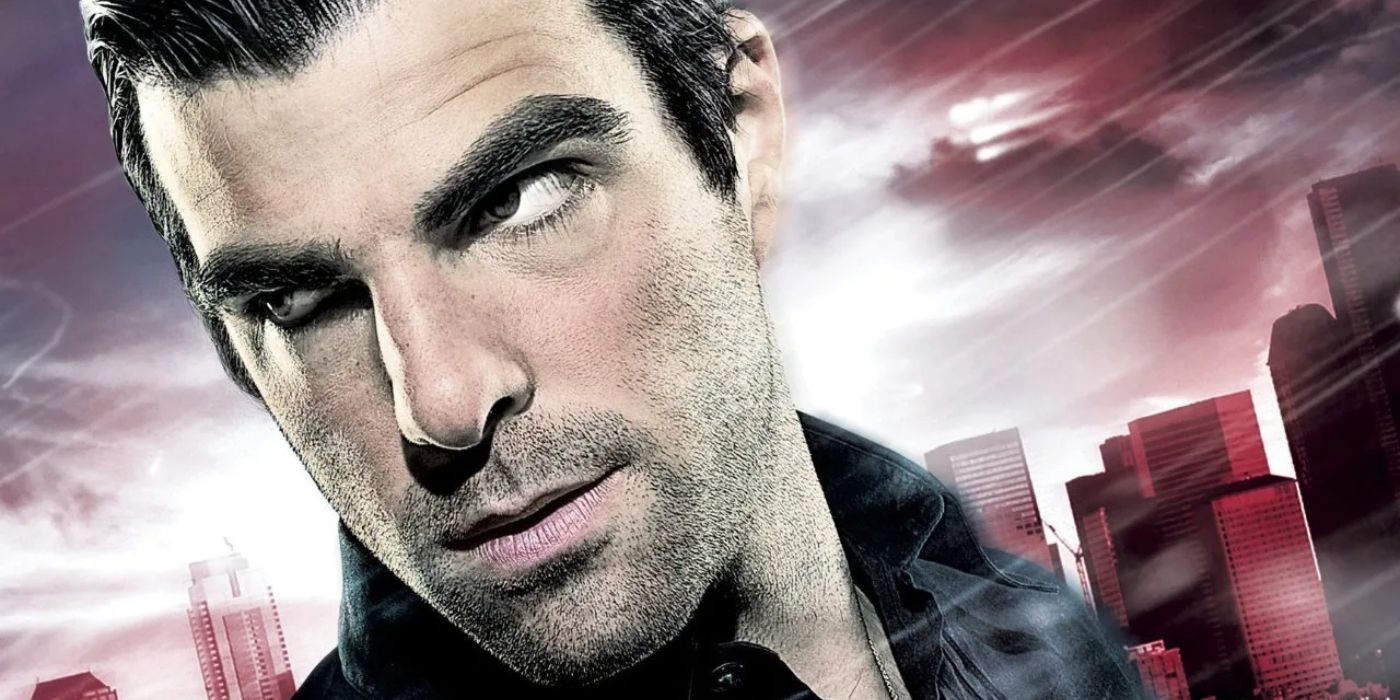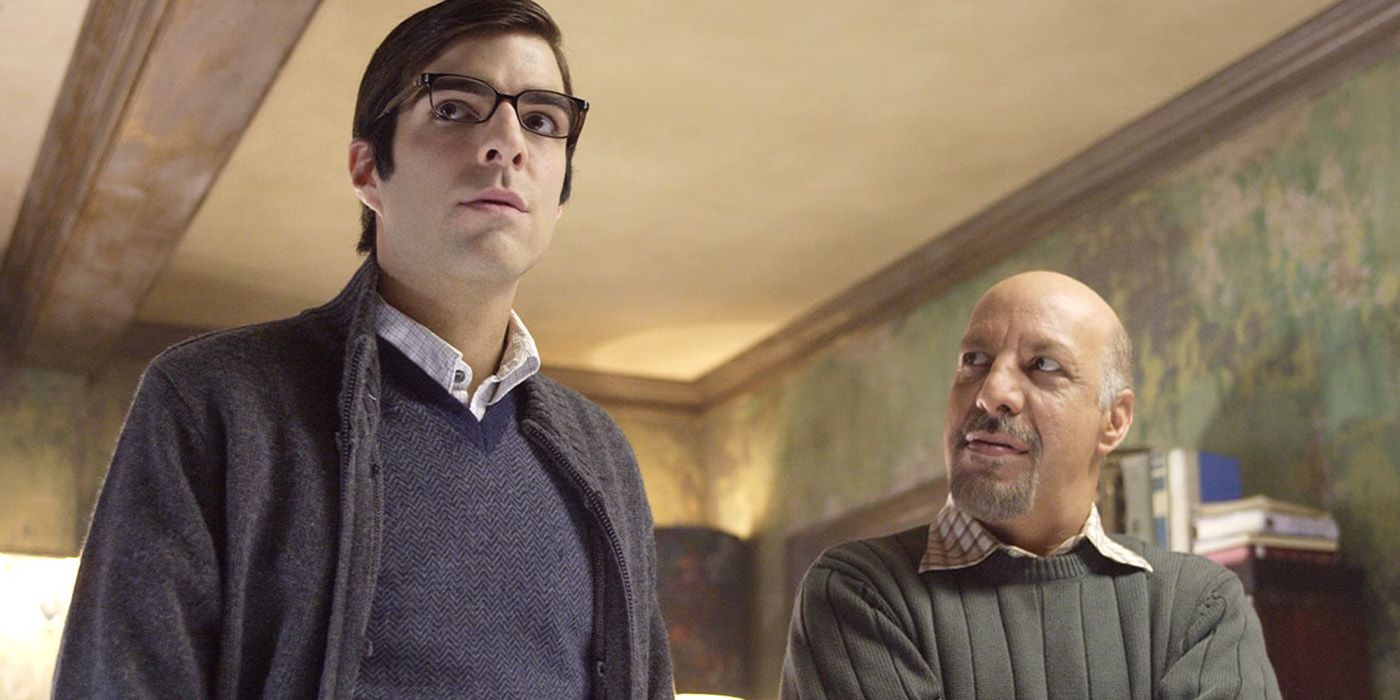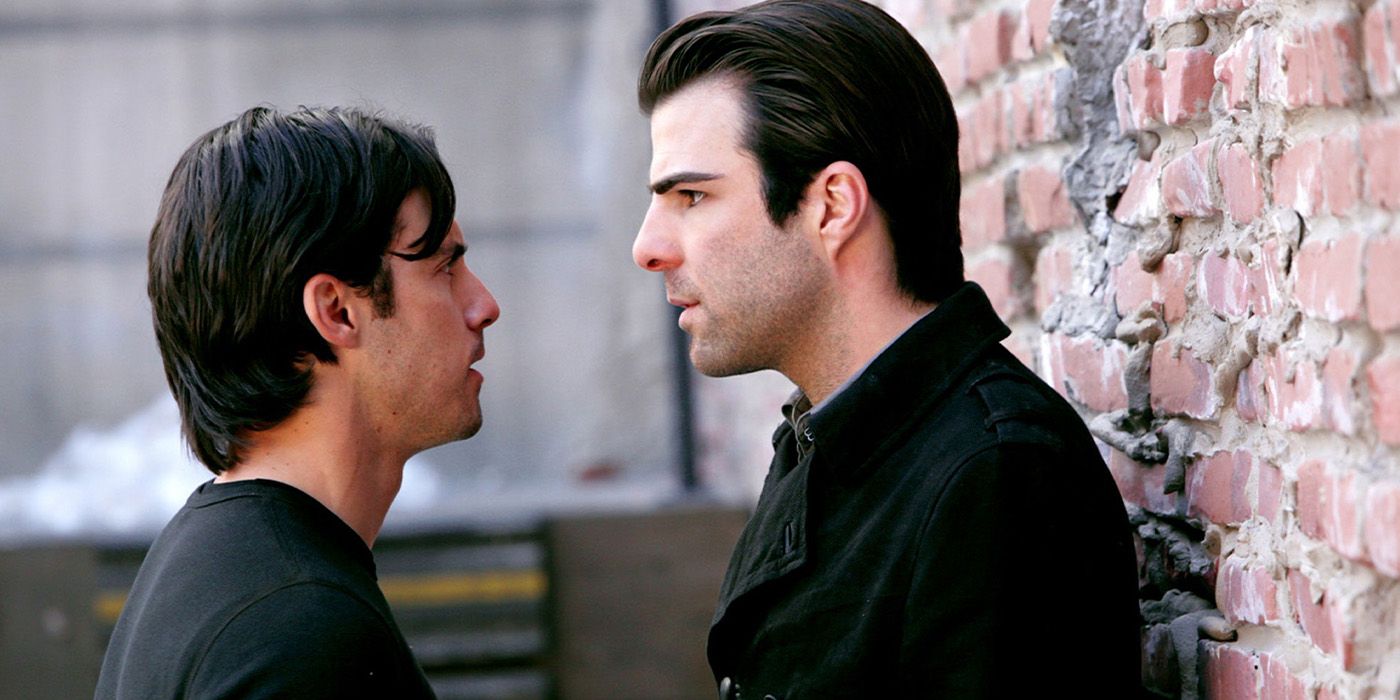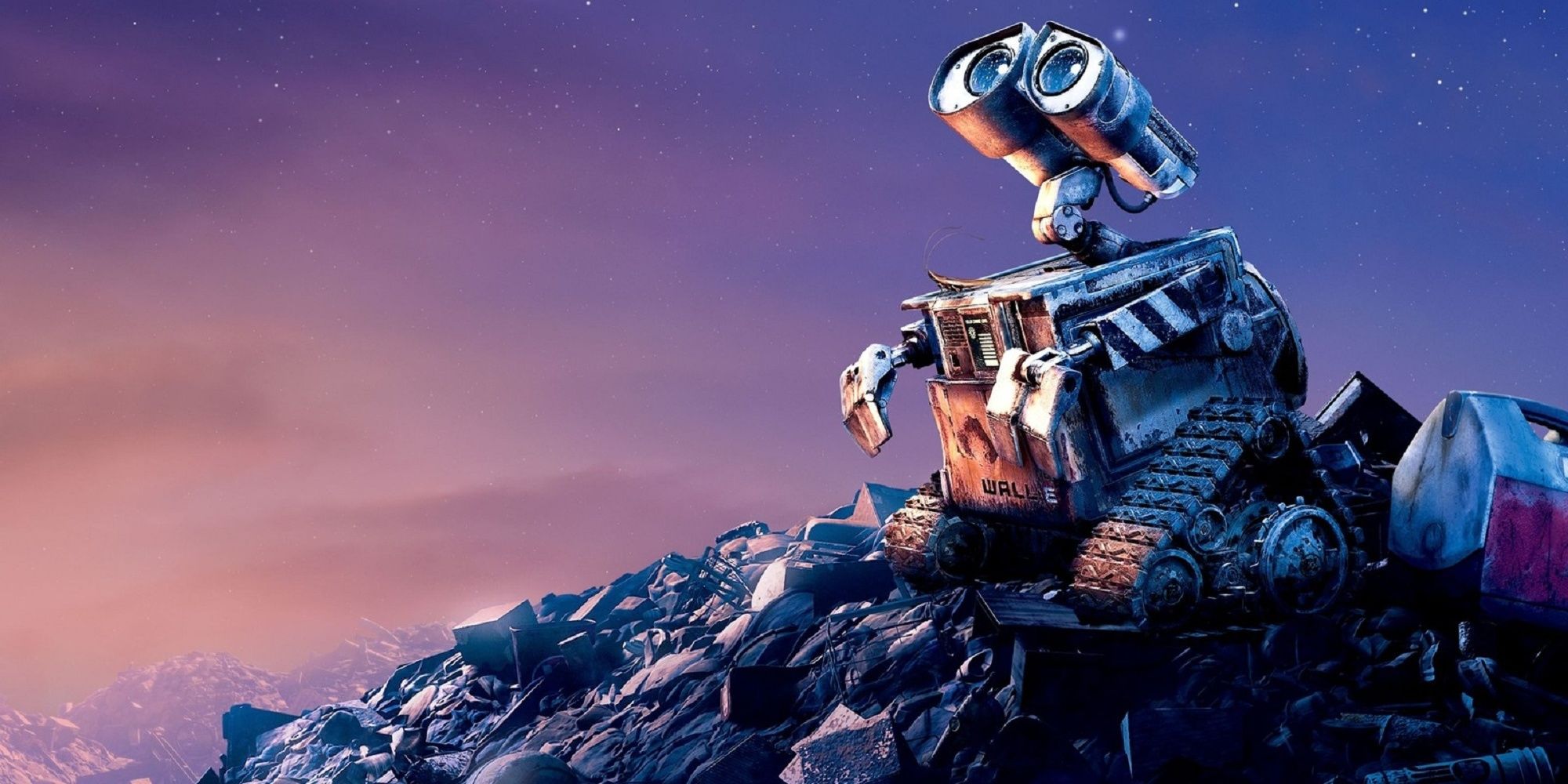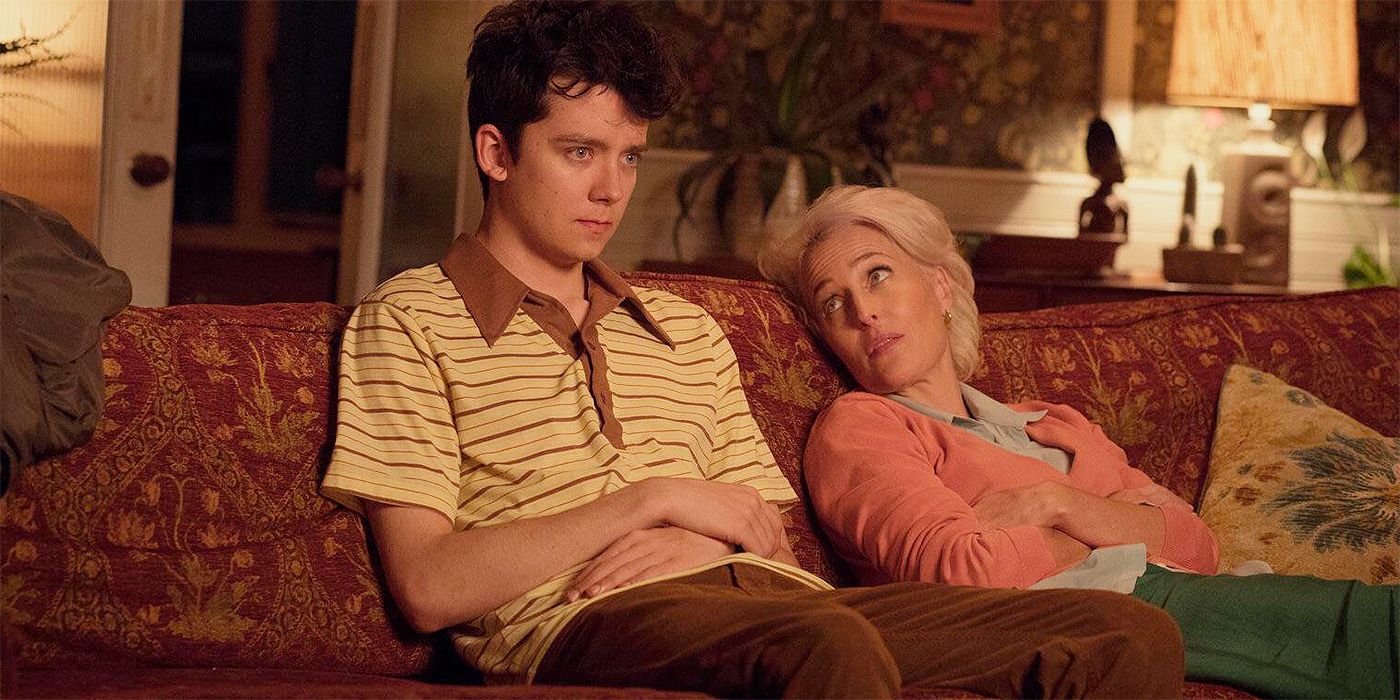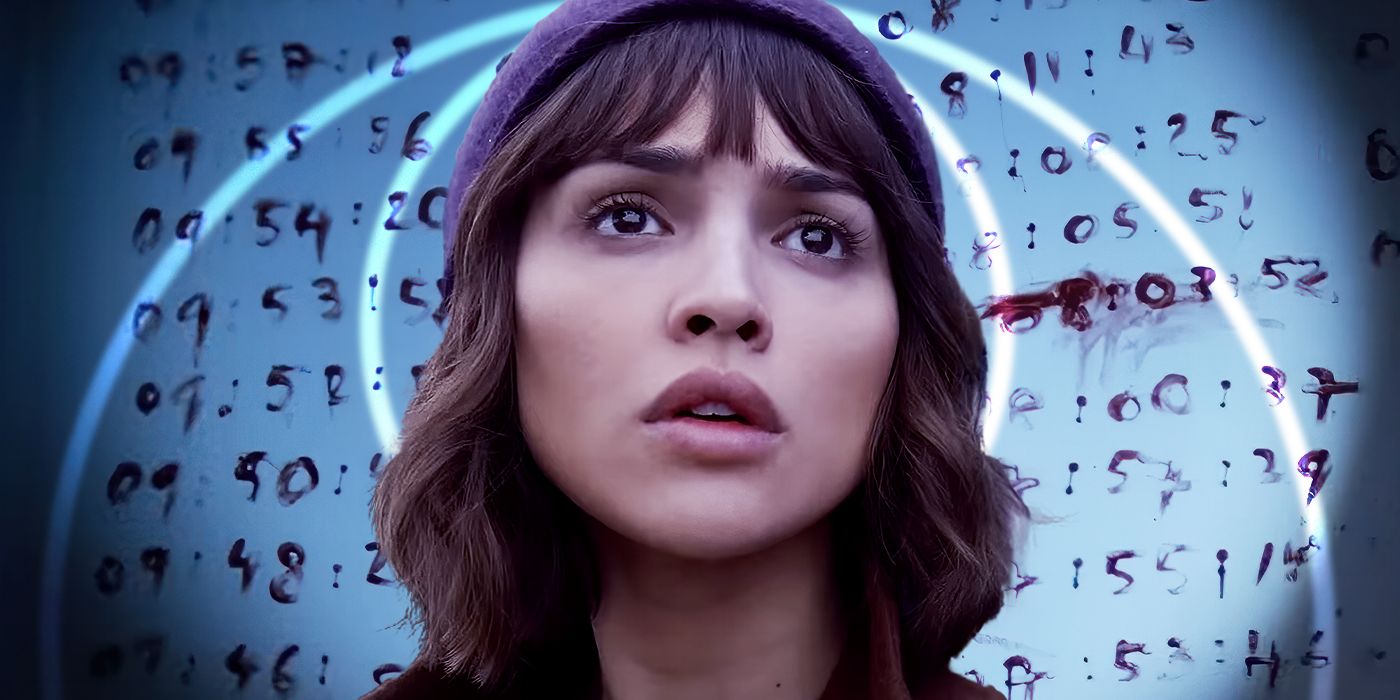The Big Picture
- Sylar’s complex motives and insatiable quest for power made him Heroes’ most fearsome villain from the start.
- Despite attempts to redeem Sylar in later seasons, his true nature as a selfish and ruthless killer always prevailed.
- The final attempt to make Sylar a hero felt forced and unresolved, as his character arc ultimately revolved around his own feelings.
When a television series is named Heroes, it has to have an engaging villain to counteract the character you’re rooting for. Superman has Lex Luthor, Batman has the Joker, and Spider-Man has Doc Ock, but for the cast of Tim Kring‘s superhero drama series, it was always Sylar. From the moment Heroes launched, Sylar was built up as this infamous and intimidating force that would rip you apart if he looked at you wrong. He was the most fearsome being in the fictional universe, and even when he was defeated (for a time), the threat lingered like an old wound. Played masterfully by Zachary Quinto in all four seasons of the original show, Sylar was Heroes‘ greatest adversary — that is, until he wasn’t.
Heroes
Common people discover that they have super powers. Their lives intertwine as a devastating event must be prevented.
- Release Date
- September 25, 2006
- Creator
- Tim Kring
- Seasons
- 4
Sylar Was Always Most Interesting as a Supervillain on ‘Heroes’
There are a lot of things that Heroes did in its first season that made it stand out among its contemporaries. The strict focus on superpowered individuals existing in a non-powered world was part of the show’s initial charm, and its attention to detail when it came to character beats and story points was exhilarating. Every time fans uncovered new secrets hidden within Heroes‘ vast mythology (such as in “Company Man”), more kept piling up. The same was true when it came to characters as well, and often our heroes (and our villains) did things that surprised us. And then there was Sylar, who throughout the first season only had one goal: to amass more power.
Series creator Tim Kring once noted that Sylar’s “Intuitive Aptitude” works mechanically, hence the character’s origins as Gabriel Gray the watchmaker. The villain’s sociopathic tendencies and penchant for killing anyone who has something to offer him kept him at a distance from our heroes, but as we got closer to the inevitable climax in “How to Stop an Exploding Man,” we learned more about where he came from and his initial quest to be, well, “special.” Sylar’s obsession with being “one of a kind” put him on the track to kill anyonewho might claim the title and take their special abilities in the process. As a superpowered serial killer, Sylar is certainly one-of-a-kind, and not the kind you’d ever want to cross in battle.
But more than that, Sylar was interesting because the end goal was always muddy. What Sylar would become once he amassed everyone else’s abilities was always unclear, as were his intentions in using the powers he collected after obtaining them (besides killing, that is). In Season 1, he seems to want to be responsible for the impending nuclear cataclysm in New York City, but he also wrestles with his desire to use his powers for something else after years of being indoctrinated by his mother, who always believed he would do something great with his “specialness.” It’s this conflict within Sylar (a name he takes from a watch brand) that drives him to near-insanity, and like every great villain, he truly believes himself to be the hero.
‘Heroes’ Struggled to Make Sylar Compelling After Season 1
In the first season episode “Six Months Ago,” we first learn about Sylar’s origins as Gabriel Gray. We discover quickly that he has a chip on his shoulder, wanting to be something that he isn’t in order to feel important or irreplaceable, not unlike a cog in a watch. “The sad part is, he’s initially well-intentioned. He wants to improve his life,” Quinto told the Pittsburg Post-Gazette in 2006. “He wants to make a difference. He wants to matter. Through the process of realizing how to do that, he gets blinded and loses himself in the pursuit of it…” Quinto admitted that Sylar goes crazy as a result, something fans of Heroes know all too well. While this concept of personal betterment is an interesting one for Sylar to start with, it’s the turn to villainy that was always interesting, especially when compared to Milo Ventimiglia‘s Peter Petrelli.
Like Sylar, Peter has a powerset that allows him to absorb the powers of others, but unlike Sylar, it’s Peter’s empathy that allows him to do this. The reason that Sylar struggles to understand Peter’s power (even though he can supposedly understand almost anything) is that Sylar himself doesn’t empathize with others, at least not normally — and when he does, it usually doesn’t last. While Peter is a hero in part because he sees others as individuals worthy of being protected, Sylar sees them as commodities primed for exploitation. He doesn’t want to simply defend others, he wants to use them. Here marks the biggest difference between the two, and why Peter represents the spirit behind classic comic book heroes and Sylar represents the supervillains that oppose them. And, frankly, Sylar is more interesting that way.
After his defeat in Season 1, the writers attempted (through multiple story arcs) to make Sylar more of an anti-hero, a complex character who isn’t a traditional superhero like Peter or Hiro (Masi Oka) or Claire (Hayden Panettiere), but rather someone who teeters the line between heroism and villainy. The problem is, that’s never who Sylar really was. Like all villains, Sylar at one point makes a choice to become a serial killer. He opts to numb his conscience and kill again and again in order to meet his own personal goals. His messy hero arc throughout the second and third seasons especially makes Sylar feel more unstable than anything else. So, by the time he jumps back into being the primary antagonist at the tail end of Season 3, it feels like we’ve already seen this story play out before — because we have.
Sylar’s Motivations Were Always Selfish, Even When the Show Made Him a Hero
Whenever Sylar tried to be a hero, it was never for the right reasons. In Season 2, he pretends to be Gabriel Gray again in order to gain the trust of Maya Herrera (Dania Ramirez), but he’s just as manipulative as he’s ever been. Even without his powers, Sylar has no issue killing her brother or eventually shooting Maya. And then Season 3 happens. Split into two volumes, “Villains” and “Fugitives,” this is really where Heroes tried (and failed) to make Sylar into a more sympathetic character. “Villains,” for example, shows Sylar just after he killed his first victim, Brian Davis (David Berman). The third season reveals that Sylar nearly killed himself after killing Brian, something we didn’t know before because it wouldn’t have made sense for the Season 1 Sylar we’d come to know and fear. Yet, to manipulate our sympathies, Sylar was made even more tragic (as if a tragic backstory gives one permission to become a serial killer).
As it often did, Heroes tried to rewrite history so that we might accept Sylar as a hero. We later learned that, under the direction of Noah Bennet (Jack Coleman), Elle Bishop (Kristen Bell) was the one who encouraged Sylar to kill again, leading to the events of the first season. During that same arc, Sylar learns that he might be Peter and Nathan Petrelli’s (Adrian Pasdar) long-lost brother, an idea that their parents didn’t dissuade the superpowered serial killer from. In finding a sense of belonging with the Petrelli family, Sylar becomes tender and affectionate towards Angela (Cristine Rose), his supposed mother, and brotherly to Peter. The only issue is that the moment Sylar revealed none of it was true, he instantly returned to his murderous ways and killed just as mercilessly as ever. He even kills Nathan at the end of the “Fugitives” arc before shapeshifting into him and taking his place.
By the time Sylar is redeemed for the final time in Season 4’s “The Wall,” it feels like an overplayed and unearned development. Not only has Sylar been shown to enjoy being the villain (believing himself to be his own warped brand of hero), but he also likes to kill. That fact has been established on Heroes before, and while some stories claim that it isn’t true (or that he doesn’t need to kill to get one’s powers), we know that the Sylar of Season 1 embraced who he was without any doubt. Yet, when Peter helps Sylar to overcome his murderous appetites, and he experiences the penance that Matt Parkman (Greg Grunberg) forces him to undergo mentally, he seems almost instantly changed, with basically no on-screen development at all. In only a single episode, we’re then meant to believe that Sylar has been reformed for good––with no consequences for his past actions demanded in return.
‘Heroes’ Didn’t Feel Right With Sylar as a Hero
In the series finale, “Brave New World,” Sylar is now a hero. Working alongside Peter, Sylar saves lives without claiming others and uses his powers for good, exhilarated by the feeling it gives him. But perhaps that’s why this final development never sat well with fans after the show officially ended: it was all still about how Sylar felt. Yes, he was doing good with his abilities (something we’ve seen him do before), but as usual, Sylar now identifies as a hero because he feels good doing it. The show’s final volume, “Redemption,” certainly tackles themes of absolution and plays the line as characters learn to make up for their previous mistakes. Hiro, Matt, Claire, Noah, and Peter all experience that one some level here, and we welcome those sorts of stories. But it’s a much harder pill for audiences to swallow when the one being “redeemed” only does so because it makes him feel good.
While characters, especially superheroes, ought to feel good while saving lives, Sylar’s entire character arc has been about how he feels. Before, it was whether he felt special or powerful, threatened or alone, adopted or abandoned. Now, it’s about feeling like a hero, centering more on his emotional needs than on his desire to actively do the right thing. How long before Sylar goes back to killing when he saves someone who proves ungrateful? How long before he kills someone who does something a little too evil? No doubt, Peter Petrelli is a character who feels good doing the right thing, but even when he feels bad about it, he still chooses to do what’s right. Sylar, who was once described as the other side of the coin to Peter, isn’t that way, which is why his eleventh-hour transformation never sat well with the fans.
Heroes was canceled in 2010, only to be revived a few years later with Heroes Reborn, but Sylar wouldn’t return. “It was such a meaningful experience for me,” Quinto explained (via Variety). “I just felt like I didn’t want to go back to it… It’s a great thing to be a part of. I just felt like I need to cultivate other outlets for myself.” Given the results, that was probably the right move, and it’s easy to see why Milo Ventimiglia, Hayden Panettiere, and Ali Larter didn’t return either. Still, with Sylar’s redemption in the end, it’s strange that we didn’t get any real mention of the character save for the tie-in ebook Save the Cheerleader, Destroy the World, but maybe that’s for the best. After all, Sylar’s journey toward heroism never felt right, even in the end, reminding us that he was always more equipped to be a villain than a hero.
Heroes can be streamed on Prime Video.
Watch on Prime Video

